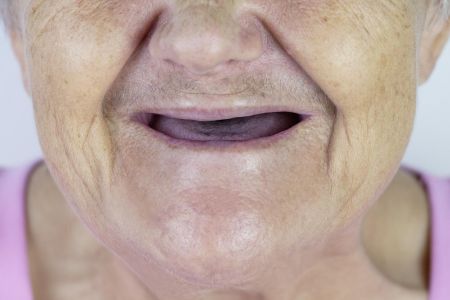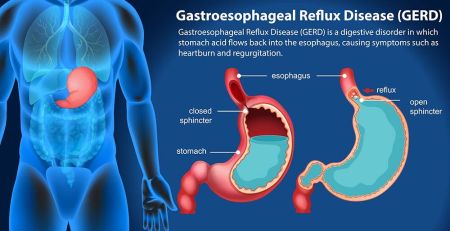What Causes Tooth Pain?
Toothache can often be a sign of tooth damage or decay. Tooth decay can cause mild to severe pain to the tooth, gum, and surrounding areas. Correspondingly, this may result in swelling, fever, or throbbing, depending on the tooth and gum infection severity.
Unless determined by a professional dentist, deciding on the underlying causes of tooth pain is challenging. Potential possibilities include:
- Tooth Decay
- A Bacterial Infection (Abscess)
- Tooth Fracture or Broken Tooth
- Gum Disease or Gum Related Issues
- Broken Filling
- Molar Teeth
- Bruxism (teeth grinding)
Outside of tooth decay and gum disease, a common cause of tooth pain in young adults is Wisdom Teeth movement.
Wisdom teeth are third molars at the back of the mouth that often begin to emerge in our later teens. They are often the last adult teeth to grow. Impacted wisdom teeth can often result in pain or swelling as they begin to move and compact neighbouring teeth.
As a result, dentists recommend removing wisdom teeth when they’re causing discomfort. However, some patients may not experience pain or discomfort with either the eruption of upper or lower wisdom teeth.
In minor cases, tooth pain might be a temporary gum irritation.
Tooth ache that persists over two days is advised to see the nearest dentist immediately. Neglecting examinations from a dentist can become more costly in the future.
If you cannot arrange a dental appointment, below are some suggestions for temporary pain relief at home. Results vary between individuals, and the tips provided are only quick solutions.
Constant tooth pain should be examined and treated by a qualified professional dentist only.
As the below are only temporary home remedies, it is up to the individual’s responsibility to perform their due diligence and research before administering DIY treatments without proper supervision.
Rinse with Warm Salt Water
Saltwater helps loosen any stagnant debris throughout your mouth, particularly between teeth. Saltwater rinsing can be used as a natural disinfectant and helps to reduce inflammation.
Salt water rinsing is also a natural remedy for relieving a sore throat.
Administer by dissolving one teaspoon of salt in a glass of warm water. Swish and rinse throughout the mouth for about 30 seconds before spitting.
Gargling salt water can help relieve tooth pain at the back of the mouth.
Cold compression
If you’re experiencing swelling and pain, try holding a cold pack or ice in a cloth to the painful area for several-minute intervals. Ice helps to reduce swelling caused by injury or swollen gums.
Applying Ice to a swollen area numbs the pain and constricts the blood vessels. As a result, this assists in slowing down the blood flow around the affected area.
Peppermint tea for tooth pain

Peppermint can help soothe and numb the pain of your teeth or gums.
Natural health practitioners recommend ginger to help with natural digestion.
Soak a peppermint tea bag in hot water for a couple of minutes. Remove the tea bag and let it rest until slightly warm. Apply the warm tea bag to the affected area immediately for relief.
Garlic

Garlic has been used in traditional medicine for its potent medicinal compounds for centuries. These include antibacterial, anti-fungal, and anti-viral properties that cause infection. As a result, garlic kills harmful bacteria while helping reduce pain.
For tooth pain, finely crush garlic to create a paste. Then apply it to the affected area. Another option is to chew the garlic clove in the area of pain.
Vanilla extract
As a result of containing antiseptic and analgesic properties, the vanilla extract may help temporarily soothe toothache. Vanilla extract also has a minimum of 35 per cent alcohol.
Made by combining pure vanilla beans with a mixture of alcohol, vanilla extracts contain alcohol.
To administer Vanilla Extra for tooth pain, take a cotton ball, cotton bud or fingertip and apply vanilla extract. Then place it on the area of the mouth, causing pain. Massaging the vanilla extract along the gum line with the finger may relieve some pressure.
Using vanilla extract for toothaches should not be used for children due to the alcohol contents of the vanilla extract.
Hydrogen peroxide rinse
Primarily used as a cleansing aid, Hydrogen Peroxide used at low concentrations levels can temporarily relieve tooth pain.
However, unlike other natural remedies, hydrogen peroxide should be used cautiously.
It is safe to use sparingly in low dosages. Otherwise, the concentration might be too strong to be used regularly. It is vital to avoid accidental digestion, and people should never gargle with it, particularly with higher mixture levels of hydrogen peroxide.
Hydrogen peroxide has been used as a home remedy due to peroxide being an antimicrobial component. Peroxide helps kill bacteria that cause infection and reduce inflammation.
To administer hydrogen peroxide rinse, mix three parts with warm water and rinse your mouth with it (1:1 ratio of 3% peroxide). Make sure not to digest any of the mixtures. Rinse mouth and spit out.
Before performing a hydrogen peroxide rinse, it is essential to dilute it with enough water so that it does not burn your mouth.
Clove oil
Clove oil or crushed cloves have been used as a natural remedy for tooth pain in Chinese and Indian medicine for centuries. Traditional methods have included inserting the clove into the infected cavity.
Clove oil contains active ingredients that include eugenol, a natural anesthetic. Eugenol helps numb and reduce inflammation. In the 18th century, eugenol and magnesium oxide were combined to create a tooth-filling material. Later zinc oxide replaced magnesium oxide to produce zinc oxide eugenol. Zinc oxide eugenol is still being used worldwide as a temporary filling cement.
To use this method, dab a small amount of clove oil onto a cotton ball, cotton bud, or gauze and apply it to the affected area. You may also use clove oil as a mouthwash by diluting a small amount into a glass of water to rinse.
Pain medication
Painkillers or Anti-inflammatories are a simple, quick way to alleviate mild toothaches. Please ensure to stay within the recommended medical dosage guidelines regarding medication.
Please consult your local pharmacist regarding advice.
Why do some toothaches hurt more at night?
Patients may experience more severe toothaches during the night. Tooth pain at night can be related to sleeping positions. As a result, this can sometimes create additional pressure on sensitive areas.
During the day, we may not experience this pressure from blood flow as we’re often sitting or standing.
Another contributing factor is if you eat sugary foods or drinks in the evening. As plaque thrives on sugar, if we forget to floss, brush and rinse our mouths properly, bacteria can aggravate the underlying causes of our tooth pain.
Make sure to see a Dentist.
If a toothache continues to cause pain over several days, visiting your closest dentist as soon as possible is recommended. A dentist can thoroughly examine the health of your teeth. X-rays also allow dentists to visually assess any underlying issues in your gum or between teeth.
Severe gum disease can affect your overall health and well-being. Identifying and fixing the issue sooner can help save your natural tooth from further damage. It may also prevent unnecessary costs or tooth loss.
Below is a listing of our clinics:
- Dentist Gold Coast: 12 Nerang-Broadbeach Road. Nerang, Gold Coast QLD 4211. (view map)
- Dentist Logan: 45 Wembley Rd. Logan Central Qld 4114 (view map)
- Dentist Jimboomba: Shop 12 Jimboomba Convenience Centre 133-145 Brisbane Street Jimboomba. QLD 4280 (view map)
- Dentist Bray Park: Shop 14 Kensington Village Kensington Way, Bray Park, Brisbane QLD 4500 (view map)
- Dentist Wynnum: 122 Bay Tce, Wynnum QLD 4178 (view map)
What dental treatments fix tooth pain?
Proper in-chair examination and diagnosis by a qualified dentist will provide an appropriate recommendation for treatment.
Diagnosis over the phone or email is tricky since a dentist cannot visually analyse the tooth and surrounding areas that may be causing the pain. If a dentist does not have access to your dental records, an X-Ray is essential to allow a correct examination of the tooth’s root underneath the gums.
Dental treatment for a toothache will vary upon diagnosing the cause
- Dental Filling: If there is a cavity in the tooth, a dentist may be able to fill the hole with resin to avoid any further decay.
- Tooth Extraction: If the cavity or decay is quite extensive, removing the tooth can sometimes be a cost-effective and quick solution. Consequently, tooth removal can cause alignment and functional issues due to bone loss. It is essential to discuss this with your dentist beforehand.
- Root Canal Therapy: This treatment might be suggested for cases where bacteria and infection have reached the tooth’s nerve. Root Canal Therapy also helps to save your natural tooth from potential removal.
- Night Guard for Bruxism, otherwise known as teeth grinding: A night guide may be recommended for patients that grind their teeth at night (unknowingly during sleep) or throughout the day. Bruxism can cause the teeth to eventually wear down, which exposes the sensitive layers of teeth.
Your Experience at Amazing Smiles Dental
Our clinics have multiple rooms. Therefore, we may be able to accommodate you for a same-day dental emergency appointment. For more information and pricing, don’t hesitate to contact one of our dental clinics by phone.
Prices vary depending on the recommended treatment. On-the-spot claiming is provided with HICAPS. Preferred Providers differ between our clinics. Please ask our team how to use your cover to treat tooth pain.









